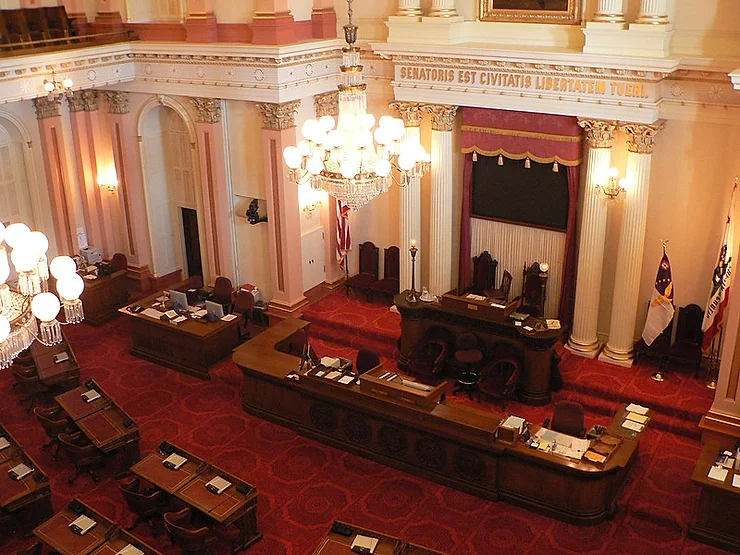Most of the bills already have advanced through preliminary committees but could face challenges in the months ahead as Silicon Valley— home to 35 of the world’s 50 largest AI companies — is expected to debate between balancing safety regulations while maintaining autonomy.
Regulating artificial intelligence while promoting industry innovation for the fast-evolving technology has become a focal point for California lawmakers this year, who have so far introduced dozens of pieces of legislation to create a national model of regulatory framework.
Most of the bills already have advanced through preliminary committees but could face challenges in the months ahead as Silicon Valley— home to 35 of the world’s 50 largest AI companies — is expected to debate between balancing safety regulations while maintaining autonomy.
In the best of all worlds, there would be, I think, a uniform scheme of regulation of AI throughout the country,” State Sen. Tom Umber (D), chair of the Senate Judiciary Committee, told Politico. “I am concerned that, given what’s happening in the Congress, that that may not be achievable anytime soon.”
Among the most prominent, tech groups are likely to resurface legislation involving watermarking digital media, defining AI, and algorithmic bias.
Assemblymember Rebecca Bauer-Kahan (D-Orinda) introduced AB 2930 to eliminate algorithmic discrimination by banning employers from using automated decision tools to make “consequential decisions” ranging from health care to housing and employment.
“Bias is embedded in the decisions made about our lives,” Bauer-Kahan said in a news release.”The difference with AI is that it’s completely opaque. Without regulation, these tools can reinforce inequality without our knowledge.”
But strong opposition from the Chamber of Commerce joined with tech leaders, insurers, banks, and life sciences industries argued the legislation is too broad and should include a safety provision for unintentional algorithmic bias.
“No AI innovator wants their service to be used to perpetuate discrimination,” CEO of tech trade group Chamber of Progress reportedly said in an interview earlier this year.
Lawmakers also reportedly passed without opposition another piece of legislation led by Bauer-Kahan to create a standard definition for AI in state law,
Several bills though are aimed at cracking down on deepfakes, which continue to rise as AI’s biggest threat to humanity. The rapidly evolving technology mimicking a person’s likeness, without permission in some cases, produced by any AI-generating entity could face consequences for any actual damages suffered by that person under proposed legislation.
Others would require tech companies to visibly label all material generated by AI while another bill would establish research groups to report on the impact of deepfakes and other related technology.
But tech companies pushed back against one such proposal from Oakland Democrat Assemblymember Buffy Wicks, arguing the technology could easily alter the material by cropping the image or screenshotting.
“How do we get Americans to trust watermarks if it’s so easy to overcome a watermark?” Assemblymember Jacqui Irwin (D-Thousand Oaks) asked during a hearing earlier this year.
Other types of bills that California lawmakers are considering include deepfakes used to influence elections, AI usage for lawyers, and requiring safety standards for large AI models.
California’s posturing for leadership in AI regulations comes after Governor Newsom introduced a generative AI executive order last summer to highlight the Golden State’s role in the technology’s future in the United States.















